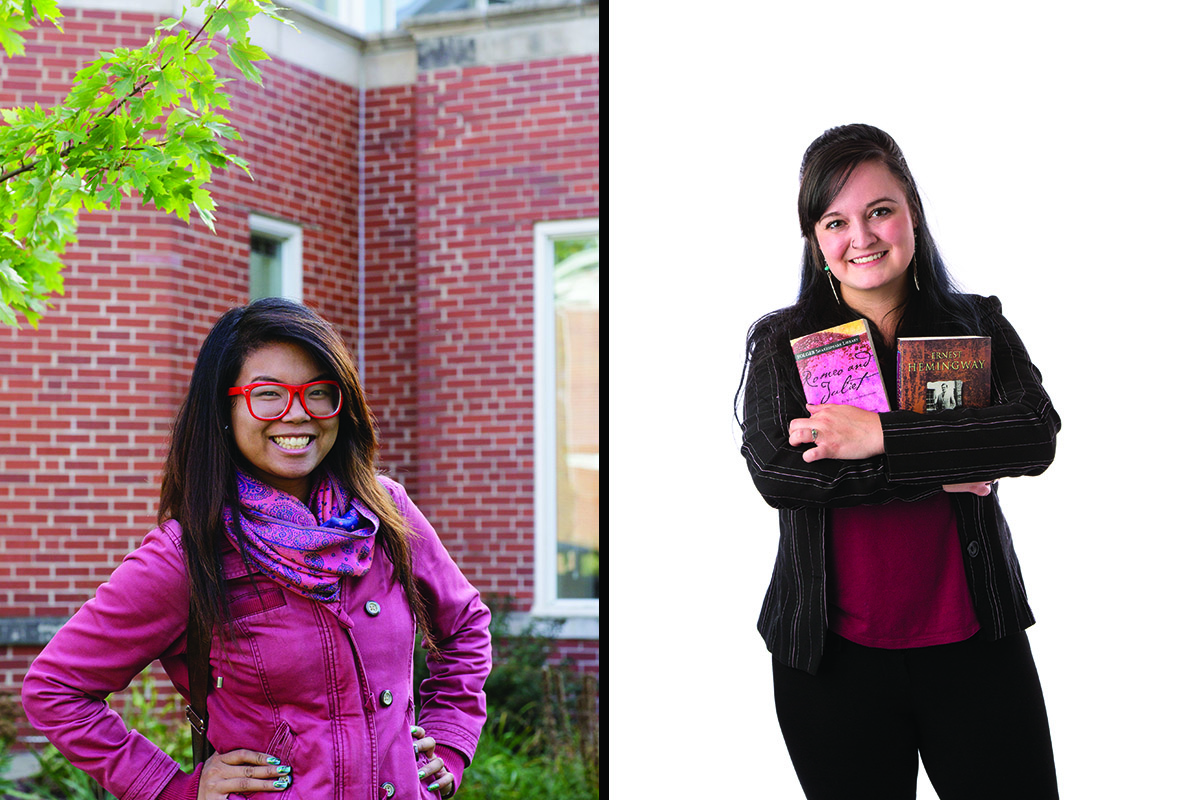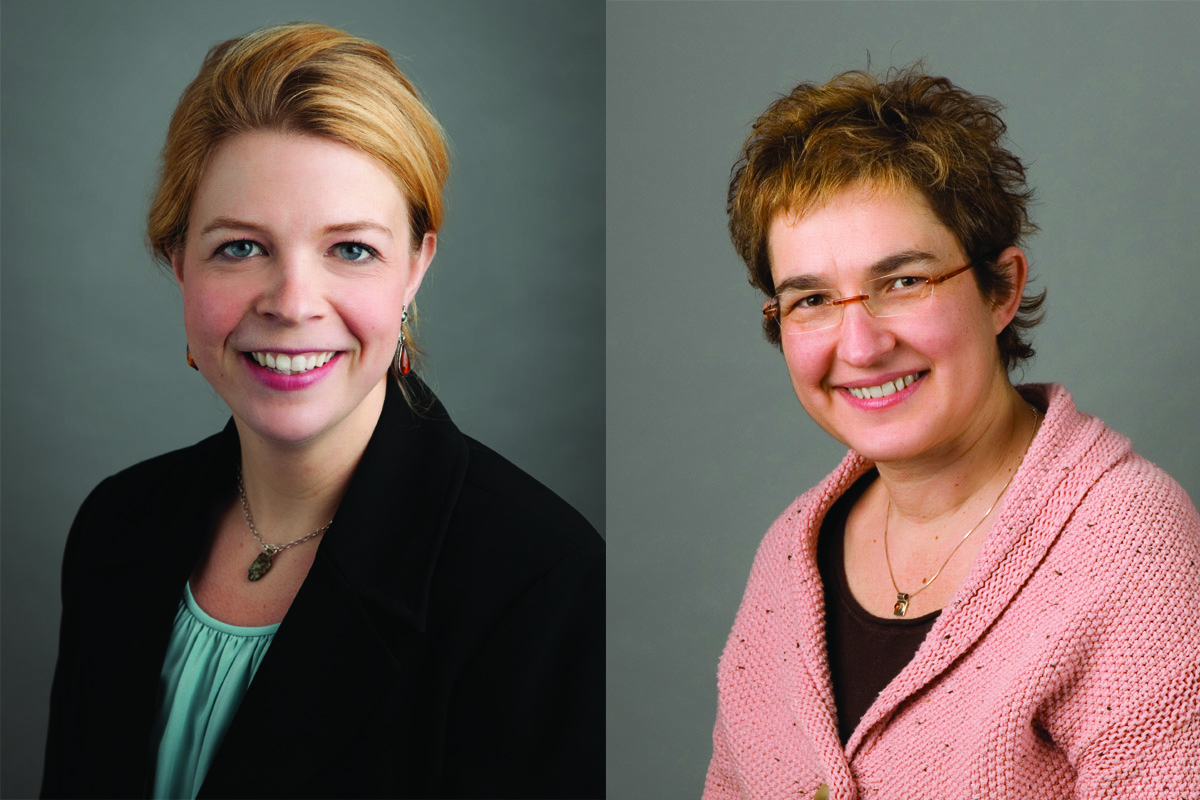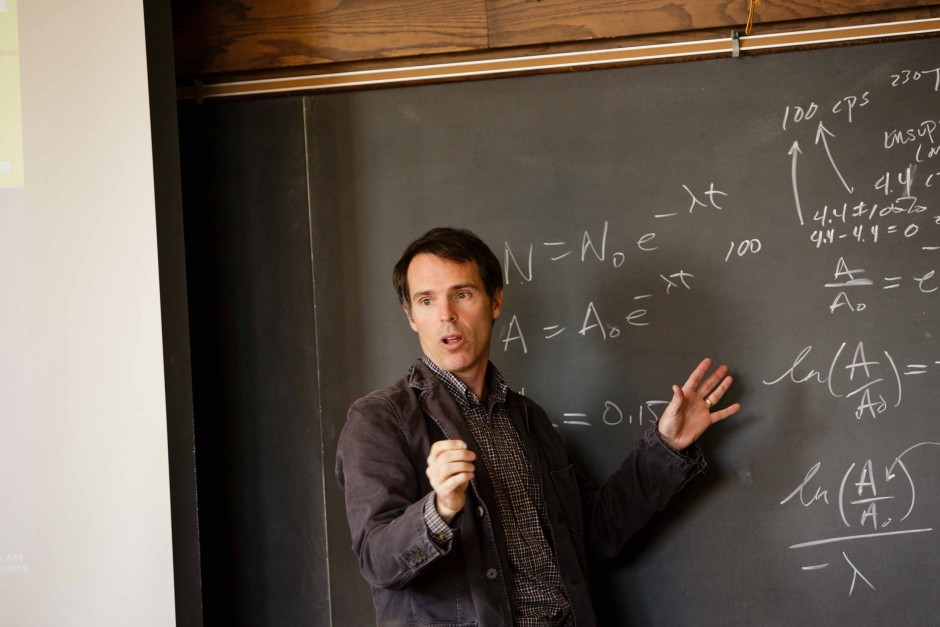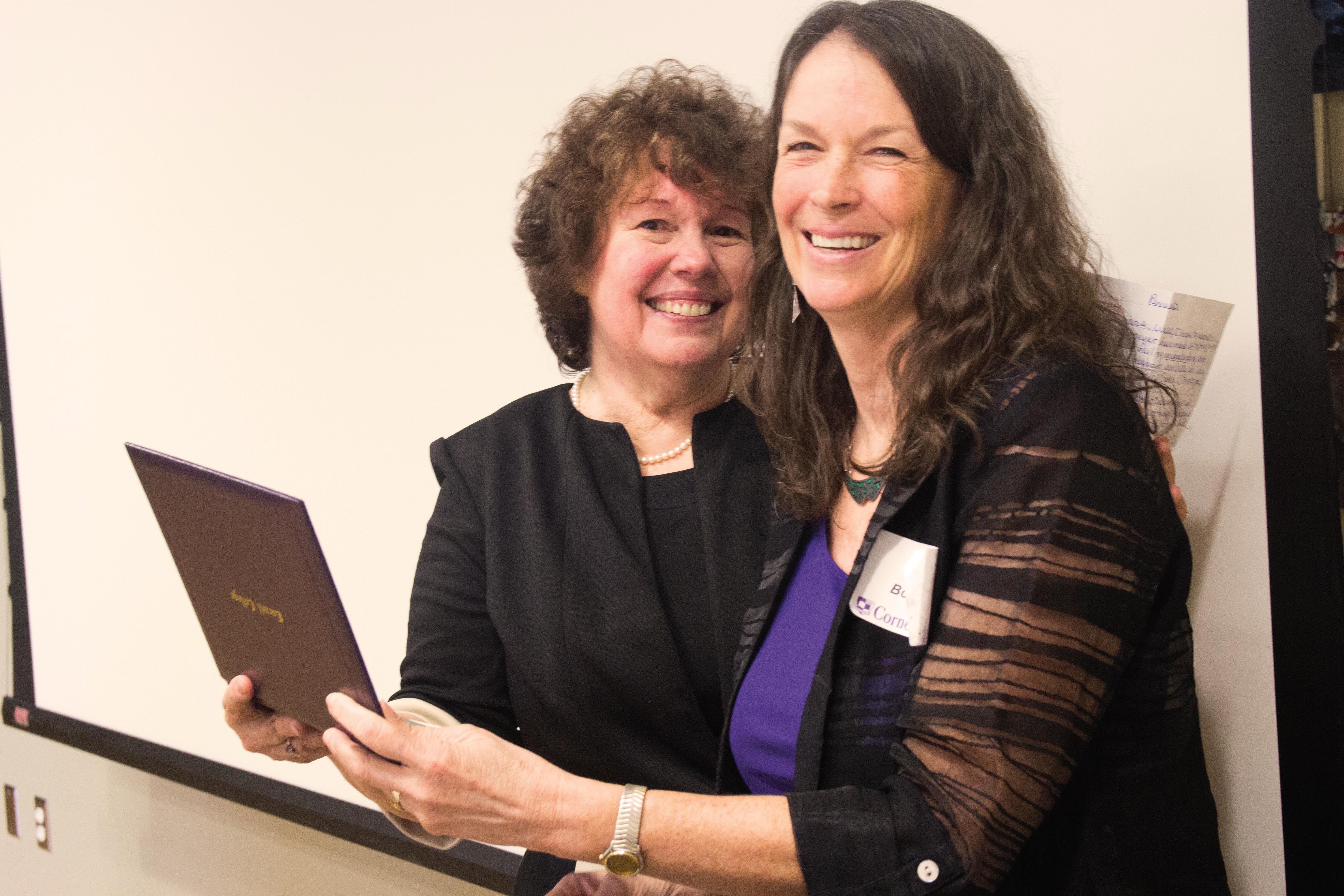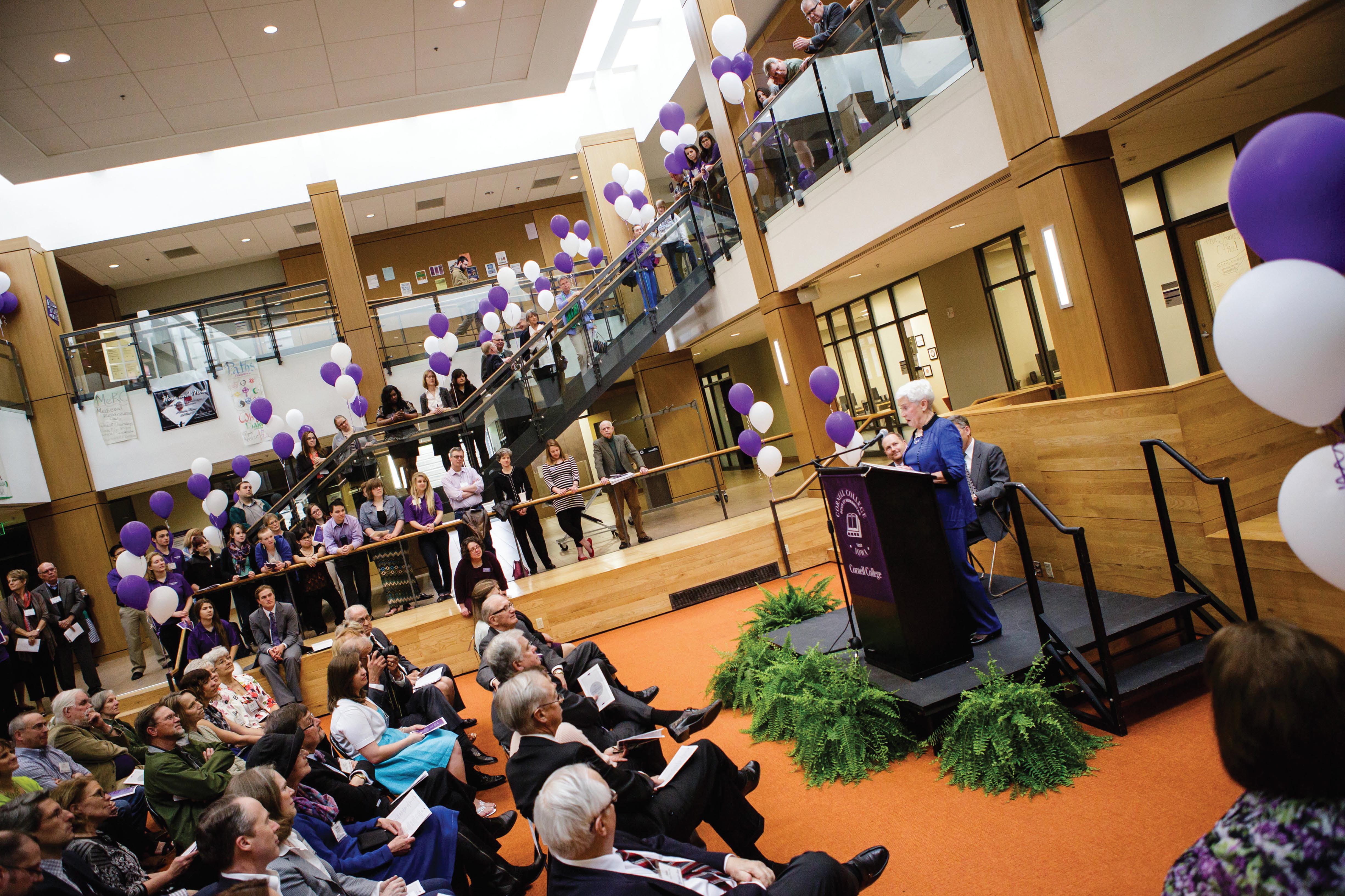Students pioneer epic piece
Fate or physics? Music Professor Martin Hearne was searching for the right piece for the Cornell College Chamber Orchestra to perform when he saw a name he’d read earlier that day in a newspaper column: Richard Feynman.
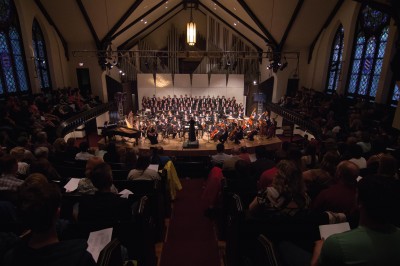
The legendary physicist and Nobel Prize winner is perhaps best known as the man who solved the mystery of the Challenger disaster. His curiosity about the world at large inspired composer Michael Gandolfi to write “QED: Engaging Richard Feynman,” which was the first result of Hearne’s search. When he listened to it, Hearne knew the epic piece was the right choice.
In April the Cornell Chamber Orchestra and Concert Choir became only the second group to perform this ambitious piece. The composer drew from a 1981 BBC interview with Feynman, where the scientist talks about finding and understanding the beauty of the world.
During the performance the choir sang selections of text from Walt Whitman, Ralph Waldo Emerson, Emily Dickinson, Siegfried Sassoon, Irish poet Joseph Campbell, and Gertrude Stein to further illuminate Feynman’s deep sense of curiosity, humor, and wonder. Segments of the BBC interview that inspired the piece were projected behind the performers, making a complete multimedia experience.
Lisa Hearne, music professor and director of the concert choir, said the piece is almost like a film score in its structure and scale.
“This performance really shows what the Cornell College music program is capable of,” she said. “Our students are dedicated musicians in addition to the other aspects of their studies, and they are able to perform amazingly ambitious, high-level pieces because of that dedication.”
The piece required a large orchestra and choir, and included physics Professor Lyle Lichty, theatre Professor Jim VanValen, and math Professor Ann Cannon; music department faculty and adjunct instructors; Cornell College Dean Joe Dieker; and several alumni, along with a selection of professional musicians.
After the Atlanta Symphony premiered the piece in 2010, the composer made revisions to the score, which had never been heard until the Cornell performance.
“The students were excited to be pioneers,” said Martin Hearne, director of the chamber orchestra.

